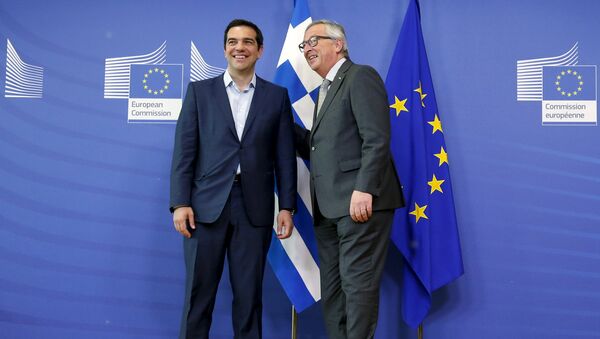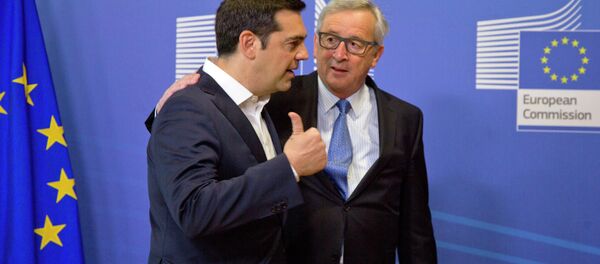MOSCOW (Sputnik) — Athens is currently negotiating debt relief terms with its international creditors, comprising the European Commission, the European Central Bank and the International Monetary Fund.
It needs to agree on a package of economic reforms to secure more than $8 billion in extra funding from lenders or default on its $1.8-billion IMF loan repayment, due at the end of this month. A default can push Greece out of the euro and possibly the European Union.
"The Commission and I myself were proposing to our Greek friends a program of 35 billions to be disbursed from now and to 2020," Juncker said, adding that one billion could be disbursed in the second semester of this year.
"This is not money, to put it simply, for the budget, but real money for the real economy. This is not only about budgetary consolidation, fiscal consolidation, although this is of permanent importance – but we need growth and we need jobs in Greece."
Juncker’s remark came in response to concerns that Greece’s new reforms initiative – that Prime Minister Alexis Tsipras shared with key EU leaders in a phone call on Saturday – targeted mostly businesses and could trigger recession.
International creditors have been pushing Athens to cut social spending instead, focusing on pensions and public sector wages, but the left-wing Syriza government refused saying this was a red line for them.
Greece already owes $350 billion to its lenders, of which $270 billion is owed to the three major international creditors – the European Commission, the European Central Bank and the International Monetary Fund. Their 2010 arrangement expires at the end of June, and Athens needs a new deal with the troika to unlock the next tranche.



